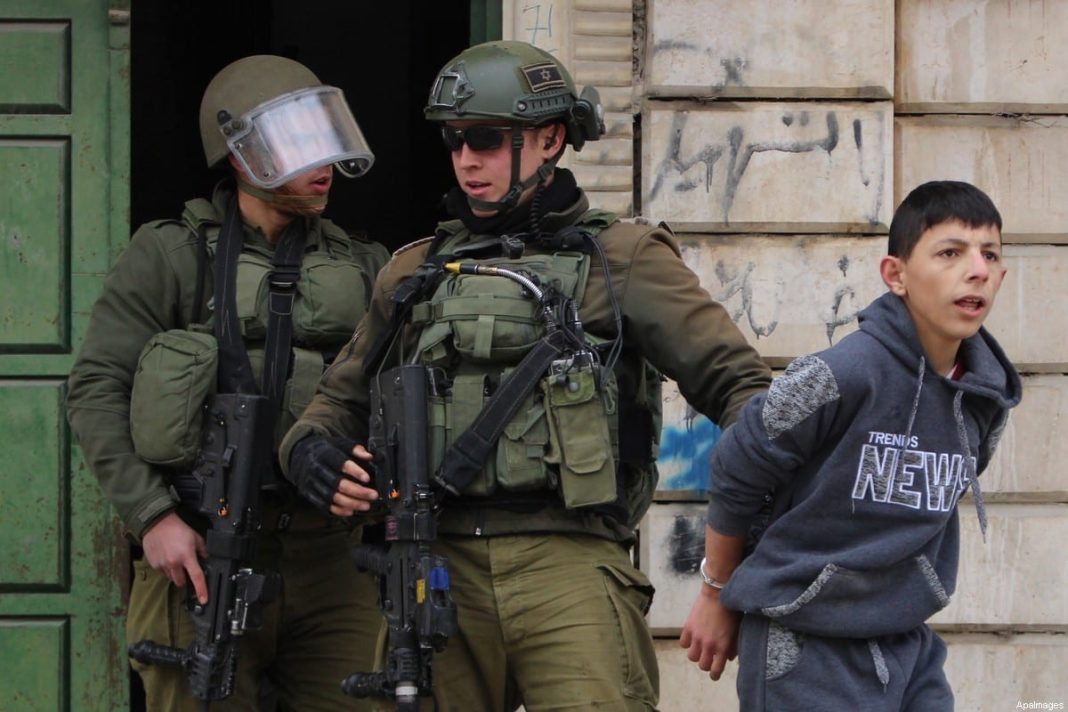The Commission for Detainees and Ex-Detainees Affairs released the information in a statement on Monday, saying the restraining method has been mostly used against children and youths in the eastern side of the occupied city of al-Quds in the West Bank.
The Israeli authorities, the statement noted, resort to the method since it enables the occupying regime to bypass its own laws that prohibit imprisonment of children under the age of 14.
While under house arrest, Palestinian minors are forced to wear a bracelet monitor at all times, and are not allowed to go to school or even a clinic without being accompanied by a supervisor, the body said.
During that period, the Israeli court examines their file until the judicial procedures against them end and a ruling is issued, which may take a few days or up to a year or more. That period is not counted as part of the actual sentence, which is later issued against the child.
Some children are removed from their family homes and are placed under arrest at another house outside their city, which belongs to a relative or a friend. In the latter case, the family is forced to rent the outlying house.
In either case, “the parents are often forced to sell property or use their savings to deposit large sums of money in the treasury of the court [that hears their child’s case] to ensure the implementation of the conditions for the release of their child,” the Palestinian Wafa news agency reported, citing the commission.
According to the commission, the house arrest conditions leave “difficult psychological effects” on children and their families.
It cited some of the adverse effects as a constant feeling of anxiety, fear, and deprivation, which force the child into a state of “psychological instability.”
A leader of the Palestinian Fatah resistance movement said in late November that the Israeli regime is keeping hundreds of prisoners, including children, behind bars, stating that the minor detainees are subjected to various forms of torture and Israeli prison officials deal with them as criminals.
Ayman al-Raqab, who is also a professor of political science at Quds University, denounced the Tel Aviv regime’s gross mistreatment of Palestinian children and flagrant violation of their rights, stating that the condition of Israeli detention centers and relevant policies contradict international principles and regulations.
Raqab noted that Israeli officials have subjected a number of jailed Palestinian children, including teenage girls, to brutal forms of torture, and treat them as serious criminals even though they are not of legal age.
The current year has also prove to be the deadliest for Palestinians so far, since 2005, when the United Nations started keeping a tally of the Israeli-caused Palestinian fatalities.
Ayman al-Raqab, who is also a professor of political science at Quds University, denounced the Tel Aviv regime’s gross mistreatment of Palestinian children and flagrant violation of their rights, stating that the condition of Israeli detention centers and relevant policies contradict international principles and regulations.
Raqab noted that Israeli officials have subjected a number of jailed Palestinian children, including teenage girls, to brutal forms of torture, and treat them as serious criminals even though they are not of legal age.
The current year has also prove to be the deadliest for Palestinians so far, since 2005, when the United Nations started keeping a tally of the Israeli-caused Palestinian fatalities.
